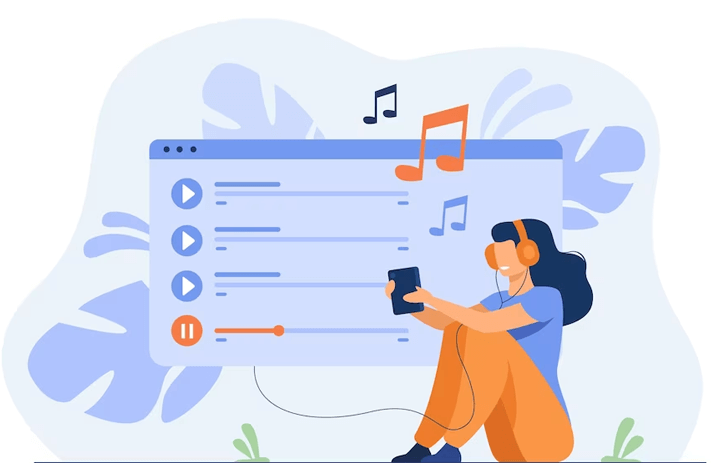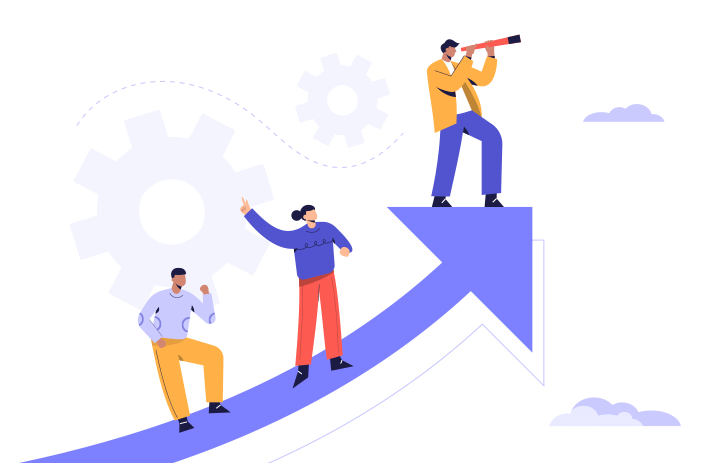
Click the button to start reading
The Best Music for Productivity, Creativity and Focus in a Noisy Work Environment
Do you ever have those days at the office where you can’t even hear yourself think? You want to get some solid work under your belt, but with the coworker who gabs on the phone every afternoon and the loudmouths who love to discuss sports at the water cooler, it’s all you can do just to crank out a few emails.
There’s so much about your workspace that’s beyond your control. It can seem like putting in a solid day’s work is completely at the whim of whatever is going on around you.
But fortunately that’s not entirely the case. There’s a classic hack to producing hours of productive, creative and focused work. Do you know what it is? I’ll give you a hint: it sometimes sounds like a symbol, it can be both lyrical and melodious, and is dished up in both major and minor keys.
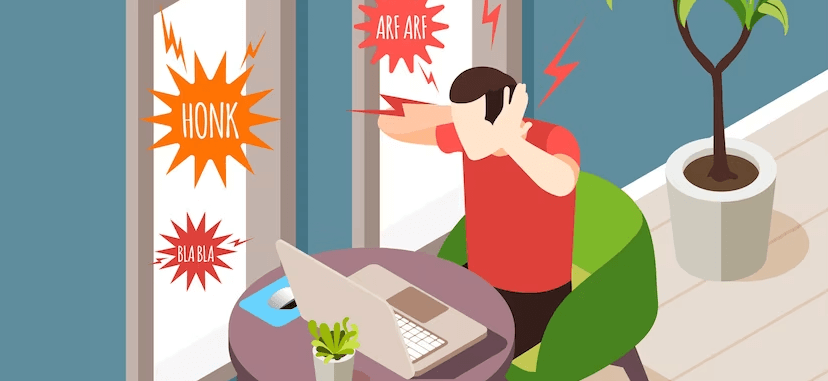
4 Dangers of Noisy Work Environments
Have you ever needed to focus on a task but couldn’t drown out the conversation going on at the cubicle next to you? It’s very frustrating. And as it turns out, noise is more than an annoyance. It affects our health and productivity and even our posture! Let’s consider some of the downsides to a noisy work environment.
Stress
It’s pretty intuitive really. An environment with constant bustle and noise has a much different impact than, say, a leisurely afternoon beside a lake.
The stress induced by a noisy environment takes a toll on our physiology. It increases our blood pressure and heart rates. Stress leads to patterns of overeating and poor sleep. In the long term, chronic stress contributes to heart disease and stroke.
Stress also impacts our motivation. When we’re haggard and frustrated, we’re less likely to put in the extra mile, and are satisfied with baseline or even mediocre work.
No Focus Work
The human brain is complex, no doubt about it. But it does have its limitations. As it turns out, our cognitive capacity can only fully engage in just one conversation at a time. Scientists estimate that it maxes out at around one and a half conversations. So those chatty exchanges between coworkers that you can’t tune out leave you only half engaged with a phone call from a client.
Whether you like it or not, our ability to put in a focused day’s work is very much at the mercy of our work environment. An open office layout with a constant din precludes our ability to fully engage in those tasks that are going to move a project along and increase value to the client.
Posture Issues
While it may not be the first thing you think about, a noisy environment actually affects our posture! Someone who’s surrounded by noise is far more likely to slump in their chair. In the long term, this leads to back pain and musculoskeletal disorders
Hard Work With Mediocre Results
Distractions take a huge toll on productivity. A noisy environment lulls us out of the task at hand. And once we’re pulled out of a focused state, it can take up to ten minutes just to get back into it. This means that we’re putting in twice the effort for every task we complete. And quite likely, we won’t have the energy to produce excellent work, but will be instead satisfied with baseline requirements.
As you can see, excessive ambient noises in our work environments have far-reaching impacts. And with open office environments becoming commonplace, most of us contend with noise all day long. Let’s look into a productivity hack to remedy this problem.
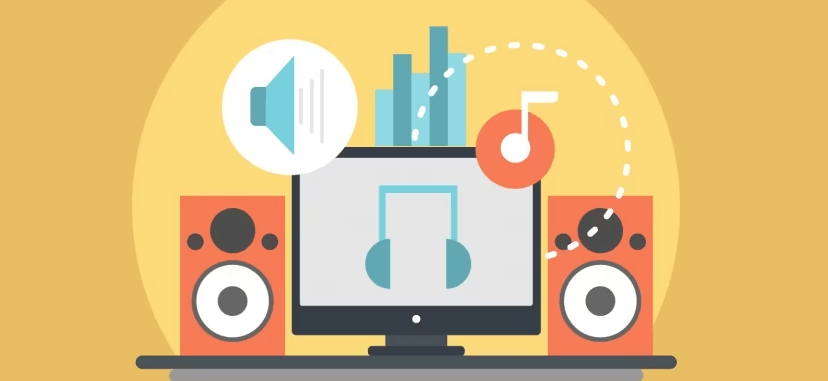
Productivity Hack #389: Music
There’s so much research and advice around improving efficiency. It ranges from time management systems to workflow patterns to project management methodologies.
But what about the environment itself? How do you construct a work environment that’s conducive to hours of focused, uninterrupted work?
You’ve probably heard that if you play Mozart to your baby he’ll grow to be a genius, if you sing to your flowers they’ll bud and blossom sooner, and if you play classical music to your farm animals and they produce better milk and lay more eggs. Within a work environment it’s just the same. Listening to music creates a space for improved output and productivity.
At first blush, this may not sound quite right. We’ve all eaten out at a restaurant where the music blared so loudly that we couldn’t even carry on a conversation with the person sitting beside us. This principle is nuanced, then. In order for music to foster focus and creativity, it requires some strategy. Let’s go over how music improves productivity and how to use it within a variety of work contexts.
Provides a Rush of Dopamine
Music in and of itself doesn’t necessarily increase output. Rather, in the same way that a stunning view lifts our spirits and a tasty meal lightens our mood, music has the capacity to provide us with a flood of enthusiasm. And this dopamine rush maintains our verve and keeps us working diligently on a task through a long afternoon when we’re tempted to cut out early.
Drowns Out Distractions
Listening to music at work blocks out ambient noises. You don’t get drawn into water cooler conversations and it’s much easier to focus on the task at hand.
However, it’s important to stress that using music as a “band-aid” to cover up other noises poses a health risk. Blaring loud music into our eardrums can cause permanent hearing loss. And so when selecting headgear for music, noise-canceling headphones are safer than earbuds. Noise canceling headphones block out ambient noises, making it unnecessary to turn the volume higher as outside noises increase.
Creates Cognitive Bursts
We all need a little jolt of something to get ourselves going in the morning. Things like coffee, a splash of cold water on the face and a quick jog around the block all serve to knock out those morning cobwebs and get us alert and ready for the day.
Music can create this stimulus as well. Ultimately, music is a language, and one that’s rich in mathematical patterns and complexity. Akin to an athlete warming up for a big game, it stimulates our cognitive capacity and gets our synapses firing and ready for action.
Increases Focus in Repetitive Tasks
Let’s face it. A lot of the work we do isn’t terribly exciting. We’ve all experienced the afternoon lag, when our body starts to feel like a sputtering engine that’s nearly out of gas. Maybe for the first few hours of the morning we race along through a list of mundane tasks, but come 2:00 pm, that same amount of work takes nearly twice as long.
Music maintains our momentum and lets us press on through repetitive and dull tasks, producing excellent work right through the 5:00 finish line.
As you can see, music can provide a wealth of benefits. When combined with other productivity hacks; things like time blocking, kanban workflows, or the agile methodology; we’re more than ready to tackle any work challenge.
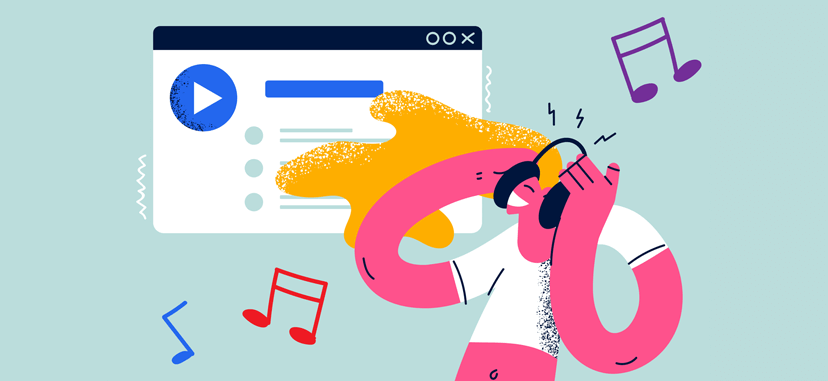
The Best Music for Productivity
Music is a broad discipline, and various forms of music have very different effects on our mood and physiology. Headbanger music, as one might suspect, commands our full attention and places us into a completely different headspace than a harp lulling mystically in the background.
And so between reggae, percussion, classical, jazz, piano and pop, which genres and instruments are the best for productivity? The answer is that it depends on the context and the productivity aims. Let’s look at several forms of music and highlight the benefits of each.
Baroque Music
Baroque music is characterized by intricate patterns and melodies repeated in creative ways. It serves as a powerful cognitive stimulus. Along with the morning cup of coffee or a short jog on the treadmill, a little Bach doesn’t hurt to get us focused and in the zone.
Mozart
You’ve probably heard of the “Mozart effect,” a term popularized in the 90s by a study out of University of California, Irvine, which found that people who had listened to Mozart enhanced their cognitive powers for a short bursts of time.
Known for its sweetness and simple yet complex melodies, Mozart serves to both calm our spirits yet keep our mental prowess sharp at the same time. And so any music written by this 18th century composer serves as an excellent go-to before a meeting or a short exam.
Music in a Major Key
Have you noticed how a song can put a smile on your face, while another can move you to tears?
Generally speaking, music that’s written in a major key is perky and upbeat and lightens our mood. While music that’s written in a minor key, or the more ancient modal tradition, is haunted or sad. It can put us into a melancholy mood.
Music in a major key, then, is more likely to rouse our spirits and invigorate us to work.
Instrumental Music
Lyrics oftentimes tell a story. They tug at our imaginations and lull us into daydreams. Music with no lyrics, on the other hand, generates focus and calm. When selecting music for mentally challenging tasks, instrumental music is the way to go, as it cultivates the focus these tasks demand.
Pop Music
Pop music, of course, is heavily dependent on lyrics, but it serves a go-to for certain types of work. Music that is upbeat and fun can get us into the groove and put a spring in our steps. Pop music is helpful in low-focus work environments, and it can speed up dull or repetitive tasks.
Film scores
Some of the most invigorating music has been written for film scores. Who doesn’t listen to the Rocky score without wanting to run up a flight of stairs, or feel an eerie shiver while listening to the distinctive score of The Good the Bad and the Ugly?
The great thing about film scores, too, is that oftentimes they’re instrumental and so are helpful for either high or low focus work.
Conclusion
And this sums up a few guidelines for selecting music to work to. The benefits of music is that it’s both left and right brain. It also relaxes us at the same time that it stimulates our brain power. What other productivity hack can deliver so many punches at the same time?
Whenever it’s possible, playing a little music on a piano, or strumming a guitar, can rejuvenate our minds and prime us for a productive day of work as well.
But while music does provide a remedy to productivity challenges, the solution is nuanced. Certain types of music create different results. What is your favorite music to listen to at work?

